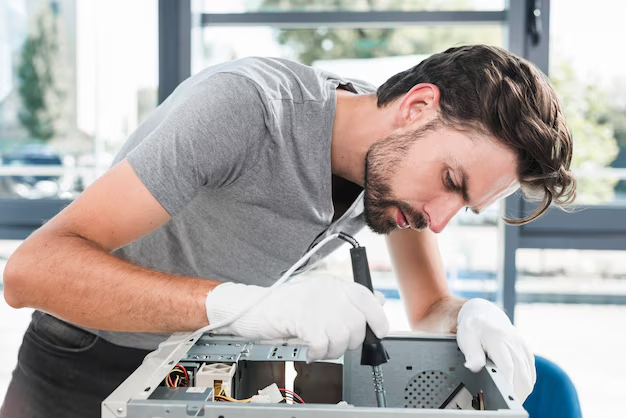Understanding Refrigerant Levels in Your Refrigerator: Everything You Need to Know
When it comes to household appliances, few are as essential as the refrigerator. It keeps your food fresh, your drinks cold, and plays a critical role in the comfort and efficiency of your kitchen. But have you ever paused to consider what goes on behind the scenes? At the heart of a refrigerator’s cooling system lies a crucial component: refrigerant. Many users wonder just how much refrigerant their refrigerator needs or whether they should worry about it at all. In this comprehensive guide, we’ll unravel the mysteries surrounding refrigerant levels, their importance, and what you should know to keep your fridge running smoothly. Let’s dive in!
🌀 What is Refrigerant and How Does It Work?
Refrigerant is a chemical compound that plays an integral role in the cooling process of refrigerators and other climate-controlled systems. In essence, it absorbs heat from the interior of your fridge and expels it outside, keeping the inside cool. This process involves cycling the refrigerant between a liquid and gaseous state as it passes through various components like the evaporator coils and condenser coils. This transformation facilitates the heat exchange necessary for cooling.
How Refrigerant Cycles Work
Evaporation: The refrigerant begins in the evaporator coils inside the fridge where it absorbs heat and transforms from a liquid into a gas. This phase absorbs heat from the fridge interior, effectively lowering the temperature.
Compression: The gas is then transported to the compressor located at the back or the bottom of the fridge. Here, it is compressed, raising both its pressure and temperature.
Condensation: As the high-pressure, high-temperature gas moves through condenser coils, it releases the absorbed heat to the outside environment and transforms back into a liquid.
Expansion: The cycle is completed when the refrigerant expands back to a low-pressure gas as it returns to the evaporator, ready to absorb more heat.
📏 How Much Refrigerant Does a Refrigerator Need?
Varied Amounts for Different Makes and Models
There's no one-size-fits-all answer to this question. Refrigerant levels depend primarily on the make and model of your refrigerator. Factors influencing the required amount include the size of the fridge, its cooling capacity, and design specifications. Residential refrigerators generally contain between 150 to 400 grams of refrigerant; however, commercial units may require significantly more.
Why Exact Levels Matter
Maintaining the correct amount of refrigerant is vital for several reasons:
- Efficiency: Too little refrigerant can make the compressor work harder, increasing energy consumption and potentially shortening the appliance's life.
- Effectiveness: Insufficient refrigerant can lead to inadequate cooling, jeopardizing the safety of food storage.
- Environment: Excessive refrigerant not only risks damaging your refrigerator but can also harm the environment if leaked.
🔍 Signs That Your Refrigerator May Have Low Refrigerant
Identifying low refrigerant levels early can save you from costly repairs or replacements. Here's what to watch for:
- Long Run Times: If your fridge seems to be running constantly, it might be due to a refrigerant issue.
- Lack of Cooling: If the inside of your refrigerator or freezer isn't as cold as usual, low refrigerant may be the culprit.
- Frost Buildup: Frost accumulation can sometimes indicate a leak.
- Unusual Noises: Gurgling or hissing sounds might suggest leaks or compressor issues.
🔧 Troubleshooting Refrigerant Issues
Can You Refill Refrigerator Refrigerant Yourself?
While the idea of refilling refrigerant yourself can be tempting as a DIY project, it's not advisable. Refrigerant handling requires specialized training due to its hazardous nature and the necessity for precise levels. Moreover, improper handling could violate environmental regulations.
Pro Tip: Always consult an experienced and certified technician for issues concerning refrigerant levels. They can accurately diagnose leaks, recharge the system, and ensure everything is running efficiently.
🛠️ What to Expect During a Professional Refrigerant Service
Engaging a professional offers peace of mind and ensures the job is executed correctly. Here’s a brief overview of what the service might entail:
- Diagnostic Check: The technician will first inspect your refrigerator for any leaks or mechanical issues and verify the current refrigerant level.
- Leak Repair: Identifying and repairing leaks is critical before any refrigerant is added.
- Refill and Testing: Once repairs are made, the technician will refill your refrigerator to the optimal refrigerant level and test for proper functionality.
🔑 Practical Tips for Maintaining Refrigerator Efficiency
Maintaining your refrigerator extends beyond refrigerant concerns. Here are some key takeaways to keep your fridge operating smoothly:
- Regular Maintenance: Schedule periodic maintenance checks with a professional.
- Clean Coils: Ensure that the condenser coils are dust-free to facilitate efficient heat exchange.
- Check Door Seals: Damaged seals can leak cold air and overwork the system.
- Monitor Temperature Settings: Set your refrigerator to manufacturer-recommended temperatures for optimal performance.
📋 Handy Reference for Refrigerator Care
Here’s a visual summary to help you keep your refrigerator in great shape:
| 🚩 Issue | 🔍 Sign | 🔧 Action |
|---|---|---|
| Low Refrigerant Level | Inefficient Cooling | Consult Technician |
| Dirty Coils | Increased Energy Bills | Regular Cleaning |
| Damaged Seals | Frequent Cycling | Replace Seals |
| Incorrect Temperature | Inconsistent Storage Temps | Adjust Settings |
Connecting All the Dots
Understanding refrigerant and its role in your refrigerator demystifies many common issues you might encounter. From energy efficiency to food safety, refrigerant plays a critical role. By being attentive to the signs of low refrigerant, scheduling regular maintenance, and engaging professionals for any complex tasks, you can ensure your refrigerator remains a dependable fixture in your home.
Refrigerators may seem straightforward, but they are sophisticated devices requiring attention and care. With this knowledge, you’re better equipped to keep your appliance running smoothly for years to come. Stay informed, be proactive, and your refrigerator will continue serving you well, ensuring the safety and quality of the food and drinks you and your family enjoy every day.

